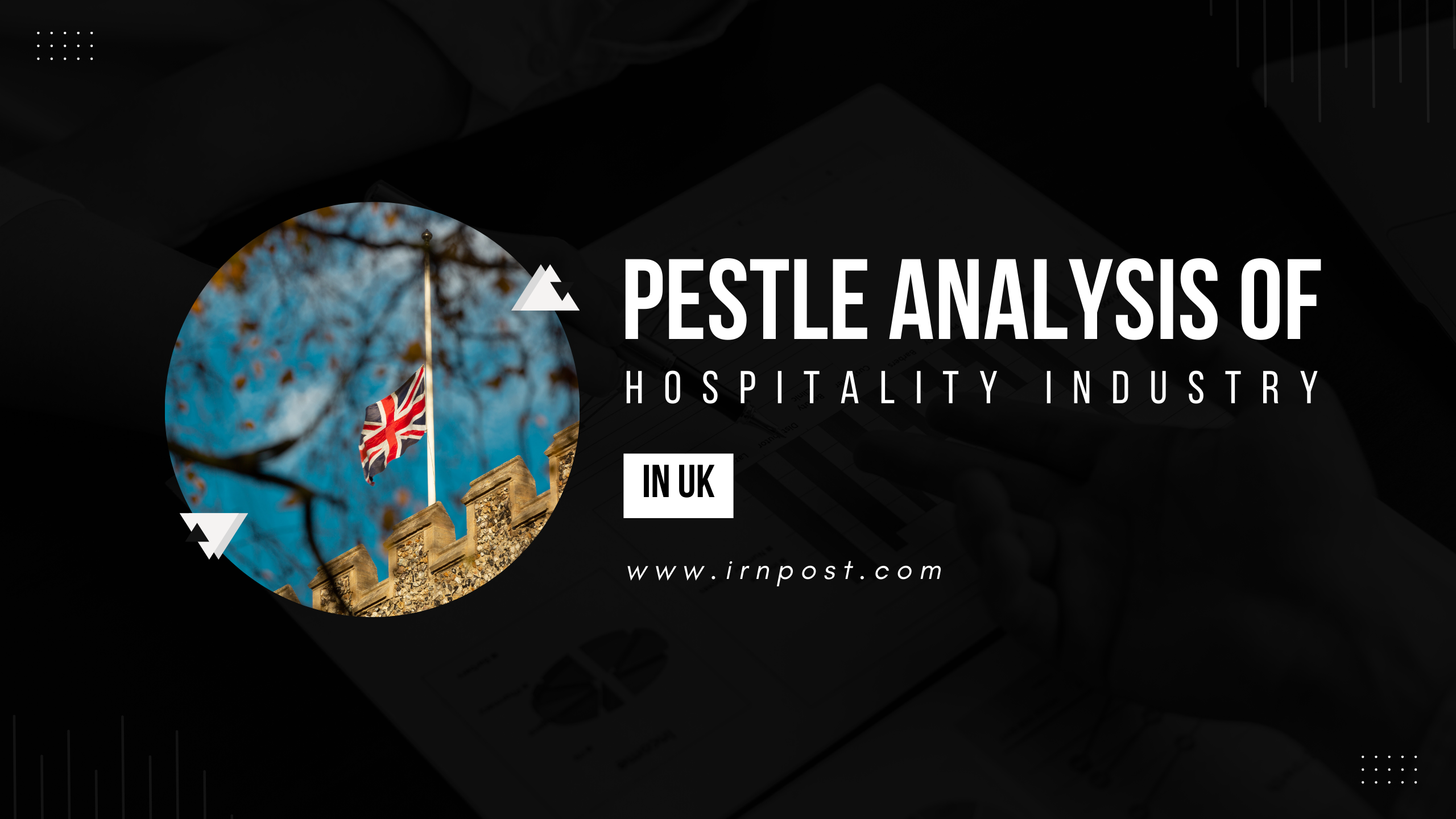Analysis
PESTLE Analysis of Hospitality Industry in UK

The hospitality industry in the UK is a vast and diverse sector that encompasses various businesses, including hotels, restaurants, pubs, cafes and bars. In recent years, the industry has faced numerous challenges, including changing consumer preferences, economic uncertainty, and the ongoing impact of Brexit. To navigate these challenges, many businesses in the hospitality industry have turned to PESTLE analysis to better understand the external factors that impact their operations.
Overview of the hospitality industry in the UK
The hospitality industry in the UK is a significant contributor to the economy, generating billions of pounds in revenue each year. According to a report by the British Hospitality Association, the industry employs over 3 million people and is the fourth-largest employer in the UK. The industry is also a vital contributor to the country’s tourism sector, attracting millions of visitors each year.
What is a PESTLE analysis?
PESTLE analysis is a framework that helps businesses understand the external factors that affect their operations. PESTLE stands for Political, Economic, Social, Technological, Legal, and Environmental factors. By analyzing these factors, businesses can identify opportunities and threats and develop strategies to address them.
Political factors affecting the hospitality industry in the UK
Brexit:
The UK’s decision to leave the European Union has had a significant impact on the hospitality industry. The industry relies heavily on migrant workers, and changes to immigration policies have made it difficult to recruit and retain staff.
Immigration policies:
The UK government’s immigration policies have made it harder for businesses in the hospitality industry to attract talent from overseas.
Taxation policies:
Changes to taxation policies, including increases in VAT, have had a negative impact on the industry.
Economic factors affecting the hospitality industry in the UK
Inflation:
Rising inflation has led to higher costs for businesses in the hospitality industry, particularly in terms of food and beverage prices.
Exchange rates:
Fluctuations in exchange rates can impact the cost of importing and exporting goods, which can affect the profitability of businesses in the hospitality industry.
Economic growth:
Economic growth is closely tied to the performance of the hospitality industry. When the economy is growing, people have more disposable income to spend on leisure activities, including dining out and travel.
Social factors affecting the hospitality industry in the UK
Lifestyle trends:
Changes in lifestyle trends, including a growing interest in health and wellness, have led to an increase in demand for healthier food options.
Demographic changes:
Changes in demographics, including an aging population, have led to an increase in demand for senior-friendly accommodation and services.
Health and safety concerns:
The COVID-19 pandemic has highlighted the importance of health and safety in the hospitality industry. Businesses must ensure that they are adhering to strict hygiene protocols to protect their customers and staff.
Technological factors affecting the hospitality industry in the UK
Online bookings and reservations:
The use of online platforms for booking accommodation and making reservations has become increasingly popular. Businesses in the hospitality industry must ensure that they have an online presence to remain competitive.
Use of social media:
Social media has become a powerful marketing tool for businesses in the hospitality industry, allowing them to reach a wider audience and engage with customers.
Mobile technology:
The use of mobile technology, including mobile payment systems, has become increasingly popular in the hospitality industry, allowing businesses to offer more convenient payment options to their customers.
Legal factors affecting the hospitality industry in the UK
Regulations on food safety and hygiene:
The UK government has strict regulations in place to ensure that businesses in the hospitality industry are adhering to high standards of food safety and hygiene.
Licensing requirements:
Businesses in the hospitality industry must comply with licensing requirements, including obtaining a license to sell alcohol.
Employment laws:
The UK has strict employment laws in place to protect workers’ rights. Businesses in the hospitality industry must ensure that they are complying with these laws, including those related to minimum wage and working hours.
Environmental factors affecting the hospitality industry in the UK
Sustainability and eco-friendliness:
Consumers are increasingly concerned about the environment, and businesses in the hospitality industry must take steps to reduce their environmental impact.
Carbon footprint reduction:
The hospitality industry is a significant contributor to greenhouse gas emissions, and businesses must take steps to reduce their carbon footprint.
Waste management:
Businesses in the hospitality industry must manage their waste effectively, including reducing food waste and implementing recycling programs.
Conclusion
In conclusion, the hospitality industry in the UK is a significant contributor to the economy, but it faces numerous challenges, including changing consumer preferences, economic uncertainty, and the ongoing impact of Brexit. PESTLE analysis can help businesses in the industry better understand the external factors that impact their operations, including political, economic, social, technological, legal, and environmental factors. By analyzing these factors, businesses can identify opportunities and threats and develop strategies to address them.
How can businesses in the hospitality industry reduce their environmental impact?
Businesses in the hospitality industry can take steps to reduce their environmental impact by implementing sustainability measures, reducing their carbon footprint and managing their waste effectively.
How can businesses in the hospitality industry attract and retain staff?
Businesses in the hospitality industry can attract and retain staff by offering competitive wages and benefits, providing opportunities for career development and training and creating a positive work environment.













